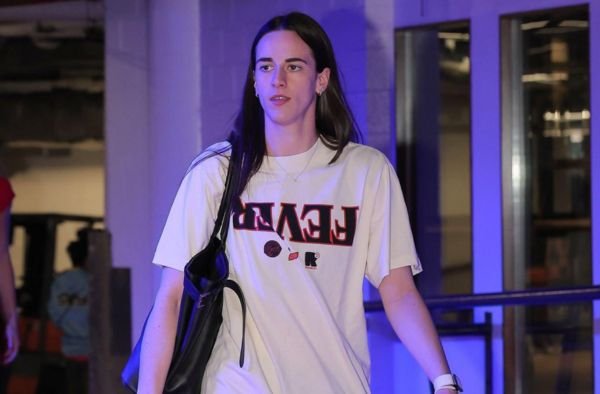In a worrying case that captured public attention, Michael Lewis, a 55-year-old man from Texas, has pleaded guilty to stalking and harassing Indiana Fever guard Caitlin Clark. On July 28, 2025, Lewis was sentenced to two and a half years in prison following a series of threatening and sexually explicit messages he sent to the WNBA star, along with stalking behavior that forced Clark to take extraordinary safety measures.

The Disturbing Case of Michael Lewis and Caitlin Clark
For nearly a month—from mid-December 2024 to January 2025—Michael Lewis relentlessly targeted Caitlin Clark, bombarding her with over 800 threatening messages on social media platform X (formerly Twitter). His actions escalated from online harassment to physical stalking, as Lewis traveled from his home in Denton, Texas, to Indianapolis, Indiana, where Clark plays professionally.
- Lewis sent hundreds of threats and sexually explicit messages between Dec. 12, 2024, and Jan. 11, 2025.
- He was found sending messages from locations close to Clark’s playing arena, including a hotel near Gainbridge Fieldhouse.
- His stalking caused Clark to disguise herself in public appearances, heightening the emotional and psychological toll.
- The FBI tracked Lewis’s activities, culminating in his arrest at an Indianapolis hotel just one day after the last message was sent.
Court Proceedings and Sentencing Details
Michael Lewis initially pleaded not guilty in January 2025 but later reached a plea agreement with Marion County prosecutors. During court hearings, he admitted guilt to one felony count of stalking.
Key points from the sentencing:
- Lewis was sentenced to 2.5 years in prison, with credit for time already served.
- He is required to stay away from all Indiana Fever and Pacers games and venues, including any related events.
- A restraining order mandates no contact with Caitlin Clark.
During his court statement, Lewis claimed he was in an “imaginary relationship” with Clark but denied ever intending harm, stating, “I just want her to be safe.”
Despite his claims, the judge emphasized the seriousness of his actions and the responsibility he accepted by pleading guilty.
Impact on Caitlin Clark and the WNBA Community
This case cast a shadow over Caitlin Clark’s stellar rise as one of the NBA’s brightest young stars. Known for her athleticism and leadership on the court, Clark was forced into hiding and increased security measures, disrupting her personal and professional life.
- Clark had to disguise herself in public to maintain safety.
- The Indiana Fever organization offered full support during the ordeal, emphasizing player safety.
- The case highlights the growing concerns about athlete safety amid threats from obsessed individuals.
Why This Case Matters: Athlete Safety and Stalking Awareness
- Stalking of public figures, especially athletes, is a serious criminal offense with real psychological and physical consequences.
- This sentencing reinforces the legal system’s commitment to protecting athletes from harassment.
- It raises awareness about the dangers of social media stalking and the importance of law enforcement cooperation.
FAQs on Michael Lewis Case and Caitlin Clark Stalking
1. Who is Michael Lewis and what did he do?
Michael Lewis is a 55-year-old man from Texas who stalked and harassed WNBA star Caitlin Clark by sending over 800 threatening and sexually explicit messages and physically stalking her in Indianapolis.
2. What was Lewis’s sentence for stalking Caitlin Clark?
He pleaded guilty and was sentenced to two and a half years in prison, with credit for time served.
3. How did Caitlin Clark respond to the stalking?
Clark was forced to disguise herself in public to avoid Lewis and took security precautions for her safety.
4. What restrictions were placed on Lewis after sentencing?
He must stay away from Indiana Fever and Pacers games, events, venues, and is barred from contacting Clark.
5. Why is this case significant for athlete safety?
It underscores the importance of protecting athletes from harassment, the serious consequences of stalking, and the necessity of swift legal action.
Conclusion
Michael Lewis’s sentencing marks a crucial victory in the fight to keep athletes like Caitlin Clark safe from harassment and threats. While the ordeal was undoubtedly traumatic for Clark, the firm response by the justice system sends a clear message: stalking and harassment will not be tolerated, especially towards public figures who inspire millions. As Caitlin Clark continues her remarkable career on the court, this case highlights the ongoing need for awareness, protection, and support for athletes everywhere.


